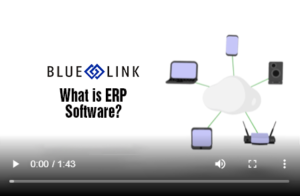Company growth is exciting! You’ve put your heart and soul into your business, worked hard, hired a team of experts and now it’s paying off. With wholesale and distribution companies, corporate growth, higher order volume and an increase in transactions go hand in hand with an increase in administrative work, data entry, and warehouse picking, packing and shipping requirements which often triggers chaos and panic as employees try to re-evaluate their responsibilities and keep up. Because of this, it could mean it’s time for some revision around the office. Looking at your current workforce is a good place to start. How are your employees handling an increase in workload? How long does it take them to do their jobs at a manual level? At the end of the day, do they feel accomplished or worn out? Your employees are the backbone of your business and as their employer, part of your job is ensuring they remain happy. You may have hired the most talented group of people you can find but if they are feeling overworked and disengaged, their performance may be lacklustre.
Overworking doesn’t just disengage employees; it affects their overall health. A recent study showed that individuals who work 55 hours or more per week have a 1-3 times higher risk of incident stroke than those working standard hours. While this tidbit of information is not to scare you, it is to give you insight into how the stress of a job can impact employee wellbeing. We all know how stress affects our sleep and how sleep affects our day-to-day lives. With about 30 percent of our lives being dedicated to working, let’s try to keep stress to a minimum.
Often when companies are experiencing growth and the current workforce can’t keep up, there are two major ways to handle the increase in order volume, administrative work and daily tasks:
Option 1: Hire someone to help manage the increased workload
Option 2: Invest in ERP Software to automate processes and decrease individual employee workload
Let’s consider a simple example of a 10-person company, where 2 employees are customer service reps (CSR) who input telephone orders. Normally, the reps work 40 hours a week, but business has been booming; the average of 50 orders a day, doubles and now the two CSR’s are working overtime to ensure timely delivery of orders. When one rep wants to take a day off, it is difficult for the other to ensure all orders are being inputted properly. Inventory is coming in faster than before, mistakes are being made and orders are delayed. If this continues, business growth will halt. The last thing you want to do is offer customers less than exceptional service. To manage the growth the business is facing and minimize employee stress, management is thinking about either hiring a helping hand or investing in software.
Based on the above scenario, there are several factors to consider. The first is Cost which refers to the implementation and maintenance of the software vs. salary and benefits for a new hire. Make sure you look at all factors including time off for the employee and the possibility of necessary extra features. Secondly, Longevity refers to how long the software will last vs. how long the employee will stay with the company. At this stage, you should be deciding if you want to grow your team (short-term) or grow the company (long-term). Next, it’s time to think about The Future. Make sure the option you choose is in line with any expected growth you have for your business and your strategic long-term goals and plans. Finally, consider your Return on Investment (ROI) to get a clear understanding of what your costs are vs. benefits. Look at hours saved, error reduction, new opportunities etc.
It is important to consider all these factors when your business starts to grow and your employees are the ones feeling overwhelmed with the increase in work. Think about your current workforce in combination with your strategic business growth to help decide what is best in the long run. If you are still unsure of what to do take a look at a few of the benefits ERP Software can provide:
- ERP automates tasks and streamlines the flow of information, which helps reduce human error and manual work
- ERP provides tools to your sales team and helps with the automation of processes
- ERP is transferable – anybody can be trained, as opposed to unique processes that only one employee understands
- ERP solutions provide an easily accessible, centralized database to manage all of your company’s information
- Robust software can stay with the company for a long time (average employee turnover rates are increasing, with a national average of 36.4% in 2019, a 9% increase from 2018.)
- Intangible benefits – quicker response time and more informed decision making












